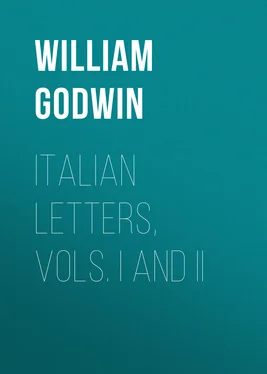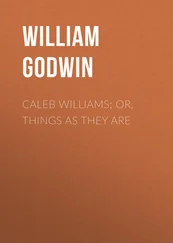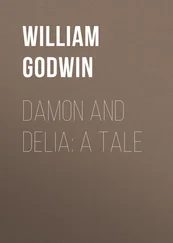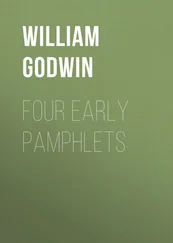William Godwin - Italian Letters, Vols. I and II
Здесь есть возможность читать онлайн «William Godwin - Italian Letters, Vols. I and II» — ознакомительный отрывок электронной книги совершенно бесплатно, а после прочтения отрывка купить полную версию. В некоторых случаях можно слушать аудио, скачать через торрент в формате fb2 и присутствует краткое содержание. Жанр: foreign_prose, История, foreign_edu, foreign_antique, на английском языке. Описание произведения, (предисловие) а так же отзывы посетителей доступны на портале библиотеки ЛибКат.
- Название:Italian Letters, Vols. I and II
- Автор:
- Жанр:
- Год:неизвестен
- ISBN:нет данных
- Рейтинг книги:4 / 5. Голосов: 1
-
Избранное:Добавить в избранное
- Отзывы:
-
Ваша оценка:
- 80
- 1
- 2
- 3
- 4
- 5
Italian Letters, Vols. I and II: краткое содержание, описание и аннотация
Предлагаем к чтению аннотацию, описание, краткое содержание или предисловие (зависит от того, что написал сам автор книги «Italian Letters, Vols. I and II»). Если вы не нашли необходимую информацию о книге — напишите в комментариях, мы постараемся отыскать её.
Italian Letters, Vols. I and II — читать онлайн ознакомительный отрывок
Ниже представлен текст книги, разбитый по страницам. Система сохранения места последней прочитанной страницы, позволяет с удобством читать онлайн бесплатно книгу «Italian Letters, Vols. I and II», без необходимости каждый раз заново искать на чём Вы остановились. Поставьте закладку, и сможете в любой момент перейти на страницу, на которой закончили чтение.
Интервал:
Закладка:
Alas, my friend, under how fair an outside are the most pernicious principles often concealed! Your honest heart would not suspect, that an appearance of politeness frequently covers the most rooted selfishness. The man who is all gentleness and compliance abroad, is often a tyrant among his domestics. The attendants upon a court put on their faces as they put on their clothes. And it is only after a very long acquaintance, after having observed them in their most unguarded hours, that you can make the smallest discovery of their real characters. Remember, my dear Rinaldo, the maxim of the incomparable philosopher of Geneva: "Man is not naturally amiable." If the human character shews less pleasing and attractive in the obscurity of retreat, and among the unfinished personages of a college, believe me, the natives of a court are not a whit more disinterested, or have more of the reality of friendship. The true difference is, that the one wears a disguise, and the other appear as they are.
I do not mean however to impute all the faults I have mentioned to the marquis of San Severino. He is probably in the vulgar sense of the word good-natured. As you have already expressed it, he knows not how to refuse the requests, or contradict the present inclinations of those with whom he is connected. You say rightly that his gallantries are such as you can by no means approve. He is, if I am not greatly misinformed, in the utmost degree loose and debauched in his principles. The greater part of his time is spent in the haunts of intemperance, and under the roofs of the courtezan. I am afraid indeed he has gone farther than this, and that he has not scrupled to ruin innocence, and practise all the arts of seduction.
There is, my dear Rinaldo, a species of careless and youthful vice, that assumes the appearance of gentleness, and wears the garb of generosity. It even pretends to the name of virtue. But it casts down all the sacred barriers of religion. It laughs to scorn that suspicious vigilance, that trembling sensibility, that is the very characteristic of virtue. It represents those faults of which a man may be guilty without malignity, as innocent. And it endeavours to appropriate to itself all comprehensiveness of view, all true fortitude, and all liberal generosity.
Believe me, my friend, this is the enemy from which you have most to fear. It is not barefaced degeneracy that can seduce you. She must be introduced under a specious name, she must disguise herself like something that nature taught us to approve, and she must steal away the heart at unawares.
Letter V
The Answer
Naples
I can never sufficiently acknowledge the friendship that appears in every line of your obliging epistles. Even where your attachment is rouzed without a sufficient cause, it is only upon that account the more conspicuous.
I took the liberty, my dear count, immediately after receiving your last, to come to an explanation with San Severino. I mentioned to him the circumstances in your letter, as affairs that had been casually hinted to me. I told him, that I was persuaded he would excuse my freedom, as I was certain there was some misinformation, and I could not omit the opportunity of putting it in his power to justify himself. The marquis expressed the utmost astonishment, and vowed by all that was sacred, that he was innocent of the most important part of the charge. He told me, that it was his ill fortune, and he supposed he was not singular, to have enemies, that made it their business to misrepresent every circumstance of his conduct. He had been calumniated, cruelly calumniated, and could he discover the author of the aspersion, he would vindicate his honour with his sword. In fine, he explained the whole business in such a manner, as, though I could not entirely approve, yet evinced it to be by no means subversive of the general amiableness of his character. How deplorable is the situation in which we are placed, when even the generous and candid temper of my St. Julian, can be induced to think of a young nobleman in a light he does not deserve, and to impute to him basenesses from which his heart is free!
Soon after this interview I was introduced by my new friend into a society of a more mixed and equivocal kind than I had yet seen. Do not however impute to the marquis a surprize of which he was not guilty. He fairly stated to me of what persons the company was to be composed; and idle curiosity, and perhaps a particular gaiety of humour, under the influence of which I then was, induced me to accept of his invitation. If I did wrong, my dear count, blame me, and blame me without reserve. But if I may judge from the disposition in which I left this house, I only derived a new reinforcement to those resolutions, with which your conversation and example first inspired me.
It was in the evening, after the opera. The company was composed of several of our young nobility, and an equal number of female performers and other ladies of the same reputation. They almost immediately broke into tête-à-têtes , and of consequence one of the ladies addressed herself particularly to me. The vulgar familiarity of her manners, and the undisguised libidinousness of her conversation, I must own, disgusted me. Though I do not pretend to be devoid of the passions incident to my age, I was not at all pleased with the addresses of this female. As my companions were more active in the choice of an associate, it may perhaps be only candid to own, that she was not the most pleasing in the circle. The consciousness of the eyes of the whole party embarrassed me. And the aukward attempts I made to detach myself from my enamorata, as they proved unsuccessful, so they served to excite a general smile. San Severino however presently perceived my situation, and observing that I was by no means satisfied with my fortune, he with the utmost politeness broke away from the company, and attended me home.
How is it my dear friend that vice, whose property it should seem to be, to hesitate and to tremble, should be able to assume this air of confidence and composure? How is it that innocence, that surely should always triumph, is thus liable to all the confusion and perplexity of guilt? Why is virtue chosen, but because she is the parent of honour, because she enables a man to look in the face the aspersions of calumny, and to remain firm and undejected, amidst whatever fortune has of adverse and capricious? And are these advantages merely imaginary? Are composure and self-approbation common to the upright and the wicked? Or do those who are most hardened, really possess the superiority; and can conscious guilt bid defiance to shame, while rectitude is continually liable to hide her head in confusion?
Letter VI
The Same to the Same
Naples
You will recollect, my St. Julian, that I promised to confess to you my faults and my follies, and to take you for the umpire and director of my conduct. Perhaps I have done wrong. Perhaps, though unconscious of error, I am some how or other misled, and need your faithful hand to lead me back again to the road of integrity.
Why is it that I feel a reluctance to state to you the whole of my conduct? It is a sensation to which I have hitherto been a stranger, and in spite of me, it obliges me to mistrust myself. But I have discovered the reason. It is, that educated in solitude, and immured in the walls of a college, we had not learned to make allowances for the situations and the passions of mankind. You and I, my dear count, have long agreed, that the morality of priests is to be distrusted: that it is too often founded upon sinister views and private interest: that it has none of that comprehension of thought, that manly enthusiasm, which is characteristic of the genuine moral philosopher. What have penances and pilgrimages, what have beads and crosses, vows made in opposition to every instinct of nature, and an obedience subversive of the original independency of the human mind, to do with virtue?
Читать дальшеИнтервал:
Закладка:
Похожие книги на «Italian Letters, Vols. I and II»
Представляем Вашему вниманию похожие книги на «Italian Letters, Vols. I and II» списком для выбора. Мы отобрали схожую по названию и смыслу литературу в надежде предоставить читателям больше вариантов отыскать новые, интересные, ещё непрочитанные произведения.
Обсуждение, отзывы о книге «Italian Letters, Vols. I and II» и просто собственные мнения читателей. Оставьте ваши комментарии, напишите, что Вы думаете о произведении, его смысле или главных героях. Укажите что конкретно понравилось, а что нет, и почему Вы так считаете.












